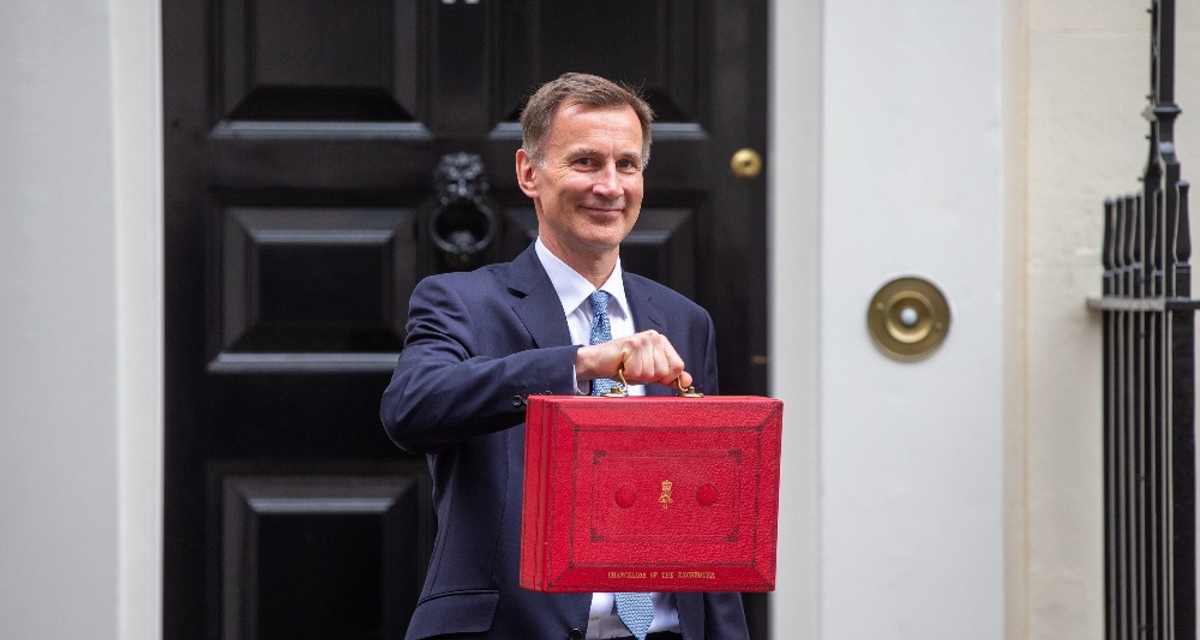29 Feb 2024
Spring Budget 2024: What’s in store for housing?

With the 2024 Spring Budget just a week away, we look at what housing-related announcements might pop out of the chancellor’s red box.
Spring is nearly here, which means it’s time for the government’s Spring Budget. And with the cost of living crisis continuing to bite, a fresh recession hitting, and a general election looming, speculation on what might be included is rife.
As ever, the housing sector will have its ears primed, and though nothing has yet been confirmed, there are certain announcements that we should be listening out for.
Let’s break them down.
Changes to stamp duty
Likelihood: medium
Recent changes to stamp duty in England mean no tax is paid on the purchase of a home, providing the total amount doesn’t exceed £250,000 (£425,000 for first-time buyers). But with the cut due to end on 31 March next year, the chancellor has come under increasing pressure to either make recent changes to the tax permanent, make further reforms, or abolish it entirely.
At the start of the year, the Institute of Fiscal Studies’ Paul Johnson – one of the most prominent UK economists – said stamp duty was “among our worst and most damaging taxes”; while just this week, a group of Conservative MPs called on the government to scrap stamp duty for those wishing to downsize. Many more have shared similar thoughts on the tax.
Hunt may well decide to leave out stamp duty when he delivers his Budget next week, and to let the current cut expire in just over a year’s time, but to do so risks rousing the ire of some already vocal critics.
Introduction of 99 per cent mortgages
Likelihood: high
As initially reported by the Financial Times, chancellor Jeremy Hunt might use this year’s Budget to introduce 99 per cent mortgages. If true, the move would make it possible for those eligible to put down a one per cent deposit on the purchase of a home. The government currently underwrites a different scheme that provides 95 per cent mortgages, and it would no doubt do the same for a 99 per cent mortgage scheme.
In theory, the policy would make it easier for thousands of aspiring homeowners to get their feet on the property ladder, as it removes the difficulty of saving for a more substantial deposit. However, there is the risk that homeowners using the scheme could find themselves in negative equity, should the value of their home decrease after the point of purchase – a reality that isn’t entirely unlikely, given the recession the UK currently finds itself in and the slump in the wider housing market.
Further detail on short-term lets reform
Likelihood: low/medium
Earlier this month, the government unveiled plans to tackle the negative impacts of short-term rentals in England. The plans include the introduction of a mandatory national register to help local and national government better gauge the extent of short-term, or holiday, lets; and giving councils greater power to make new short-term lets subject to the planning process.
While we already have confirmation of the plans – which are intended to stem rising housing unaffordability for local people in areas particularly affected by the rise in short-term lets – the chancellor could use his budget to provide further detail around the controls, which are set to be introduced this summer.
Tweaks to Lifetime ISAs
Likelihood: medium
Some have speculated that the chancellor will make changes to the existing Lifetime ISA (LISA) scheme, which allows savers between the ages of 18 and 50 (who have made their first deposit before the age of 40) to earn a 25 per cent yearly bonus, paid for by the government, on new deposits.
Under the current rules, savers who make a withdrawal for purposes other than for buying a house or for retirement, will incur a 25 per cent penalty. However, Hunt could announce a five per cent reduction in the penalty, bringing it down to 20 per cent.
As the LISA currently stands, homebuyers will also incur a penalty if they use their LISA savings to purchase a home for more than £450,000. This limit may rise by £50,000, meaning a purchase of more than £500,000 would trigger the penalty instead.
Another Household Support Fund extension
Likelihood: medium
Although it has been extended four times since it was introduced in 2021, the government is facing growing calls to again extend the Household Support Fund.
The fund was originally introduced and shared out to English councils in October 2021 (with the Barnett formula coming into play for devolved nations) to help households across the country deal with the cost of living crisis. Although the rate of inflation has now eased and energy and fuel prices aren’t skyrocketing like they once were, many people remain in a state of hardship, as many councils have been keen to point out.
There is no indication that the chancellor will extend the fund – which is set to end on 31 March, alongside the final cost of living payments – but if he is to make an announcement, next week’s Budget will be the time to do it.
We published our Spring Budget submission in January, calling on the government to:
- Reform welfare provision to support those on the lowest incomes
- Invest in homelessness prevention and support
- Support people with energy costs and continue to drive decarbonisation and energy efficiency improvements in homes
- Increase grant levels to boost the supply of affordable housing
- Invest in existing and new supported housing to meet a range of needs.
Whether the government will act on these recommendations in next week’s Budget remains to be seen.


